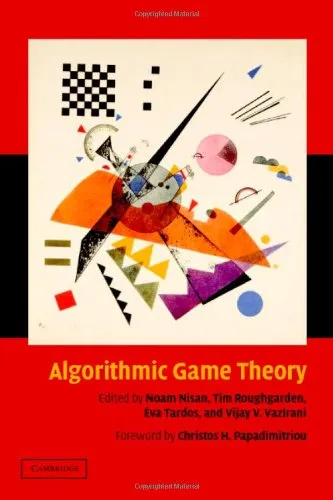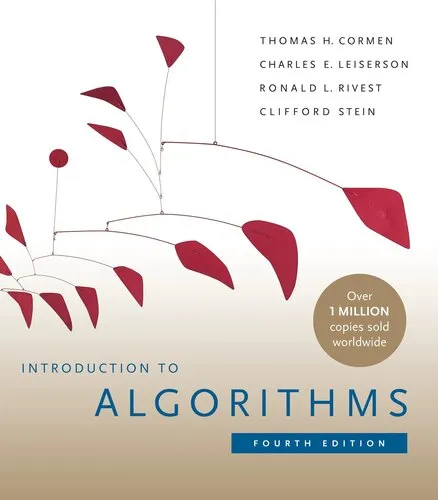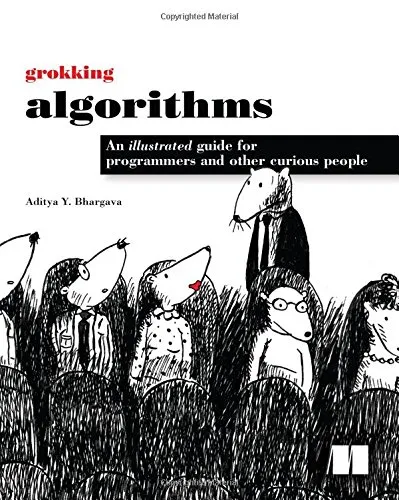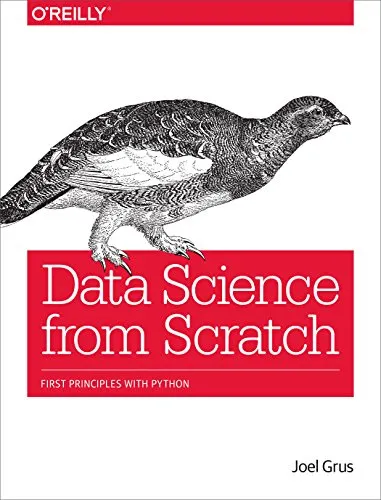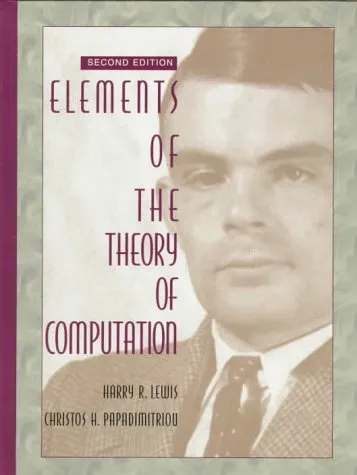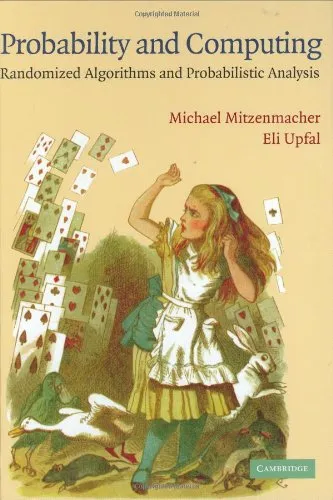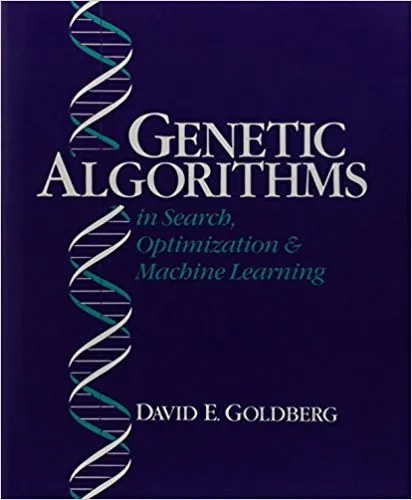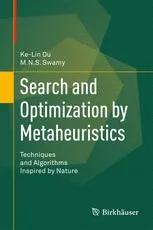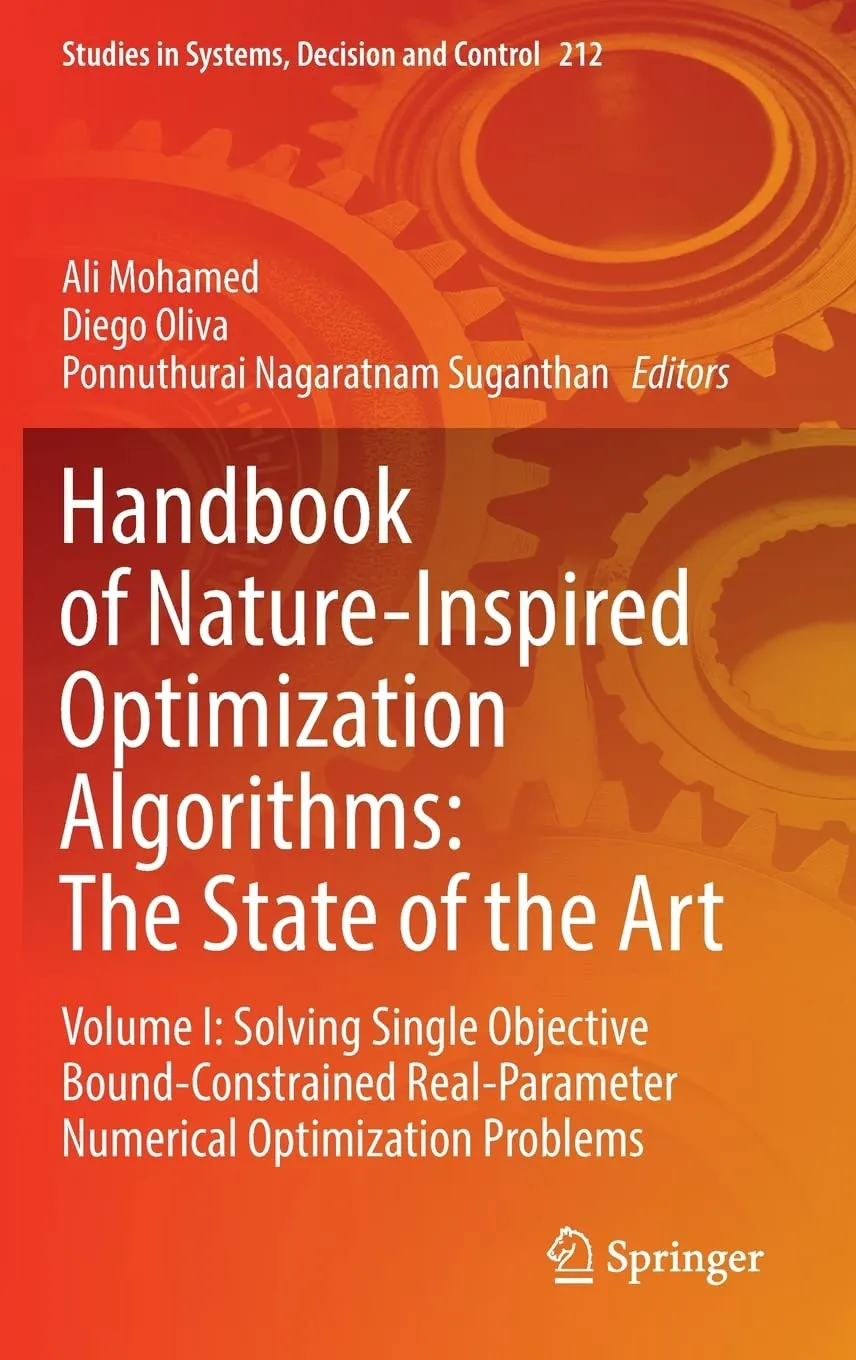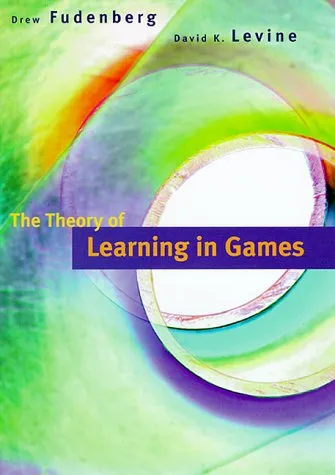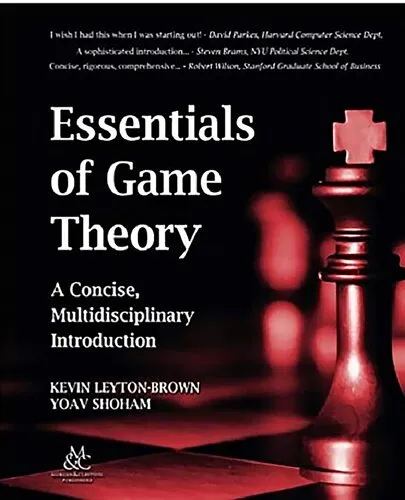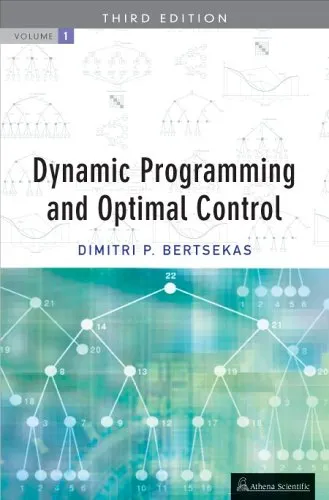Algorithmic game theory
4.5
Reviews from our users

You Can Ask your questions from this book's AI after Login
Each download or ask from book AI costs 2 points. To earn more free points, please visit the Points Guide Page and complete some valuable actions.Related Refrences:
Introduction to Algorithmic Game Theory
The book Algorithmic Game Theory bridges the disciplines of computer science and game theory, presenting a comprehensive exploration of how game-theoretic principles can be applied in algorithmic settings. Authored by Noam Nisan, Tim Roughgarden, Eva Tardos, and Vijay V. Vazirani, this seminal work serves as a cornerstone for understanding the interplay between algorithms and strategic behavior in computational environments. Designed for a diverse audience ranging from researchers and educators to students and practitioners, this book lays the groundwork for the growing field of algorithmic game theory.
From online auctions and market design to network routing and resource allocation, Algorithmic Game Theory delves into a variety of real-world problems where algorithms and strategic interactions converge. With a strong emphasis on rigorous theory accompanied by practical insights, this book has become an essential resource for anyone looking to explore how rational behavior and computational complexity shape modern decision-making in distributed systems.
Detailed Summary of the Book
At its core, Algorithmic Game Theory explores how game theory can be employed to develop robust algorithms, especially in decentralized environments where individual parties have conflicting interests. The book introduces a variety of foundational concepts, starting with basic non-cooperative game theory, including Nash equilibria, mixed strategies, and dominance.
The text moves on to computational challenges within game theory. Topics such as the computational complexity of finding Nash equilibria, designing incentive-compatible mechanisms, and analyzing network games are discussed in-depth. Special focus is placed on auction theory, an area that has witnessed remarkable growth with applications in online marketplaces, search engine advertising, and cloud computing.
The authors also address topics like the Price of Anarchy, a critical concept for understanding efficiency losses in decentralized systems, and algorithmic mechanism design, which merges economic incentives with computational guarantees. Additionally, strategic network formation and resource allocation problems are explored, showcasing how simple, local rules can lead to emergent and often suboptimal global behaviors.
Key Takeaways
- Understand the foundational principles of game theory and their computational applications.
- Gain insights into the design of mechanisms and algorithms that incentivize truthful reporting and strategic behavior.
- Discover the tools used to analyze inefficiencies in decentralized systems and propose mechanisms to mitigate them.
- Learn about the computational complexity of finding equilibrium solutions in non-cooperative games and auctions.
- Explore real-world applications of algorithmic game theory in fields such as e-commerce, online advertising, and network management.
Famous Quotes from the Book
"The Internet can be viewed as the world's largest decentralized game, where every participant acts according to their self-interest, yet their behavior results in a functioning global system."
"At the intersection of algorithms and incentive structures lies a fascinating challenge: ensuring that rational individuals, each acting for themselves, contribute to the greater good of the system."
Why This Book Matters
In the era of distributed networks, online platforms, and global-scale systems, understanding the dynamics of strategic behavior in computational landscapes is more critical than ever. Algorithmic Game Theory provides a roadmap for tackling these challenges, equipping readers with theoretical and practical tools to analyze and design systems where individual goals may conflict with collective objectives.
Additionally, as technology becomes increasingly pervasive in every aspect of human life, from economics and business to communication and transportation, studying the principles outlined in this book enables us to build systems that are efficient, fair, and capable of incentivizing good behavior. The blending of computer science and game theory in this text has profound implications, making it a must-read for anyone interested in advancing the frontiers of both disciplines.
Free Direct Download
You Can Download this book after Login
Accessing books through legal platforms and public libraries not only supports the rights of authors and publishers but also contributes to the sustainability of reading culture. Before downloading, please take a moment to consider these options.
Find this book on other platforms:
WorldCat helps you find books in libraries worldwide.
See ratings, reviews, and discussions on Goodreads.
Find and buy rare or used books on AbeBooks.
1485
بازدید4.5
امتیاز0
نظر98%
رضایتReviews:
4.5
Based on 0 users review
Questions & Answers
Ask questions about this book or help others by answering
No questions yet. Be the first to ask!
